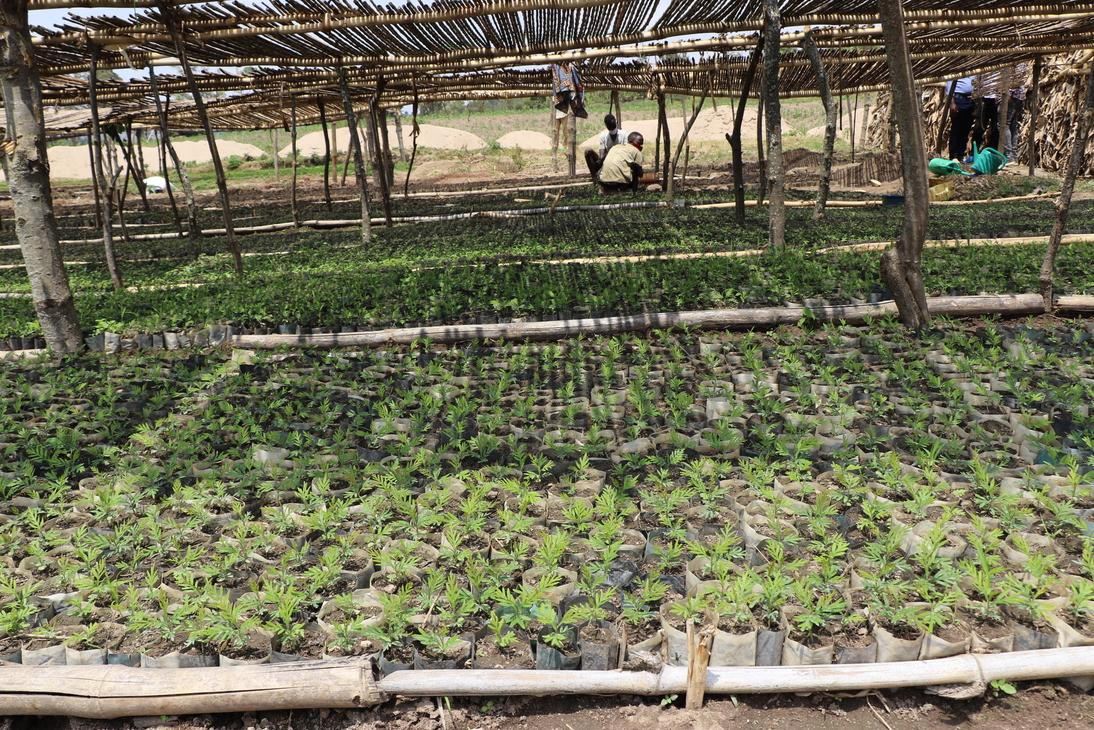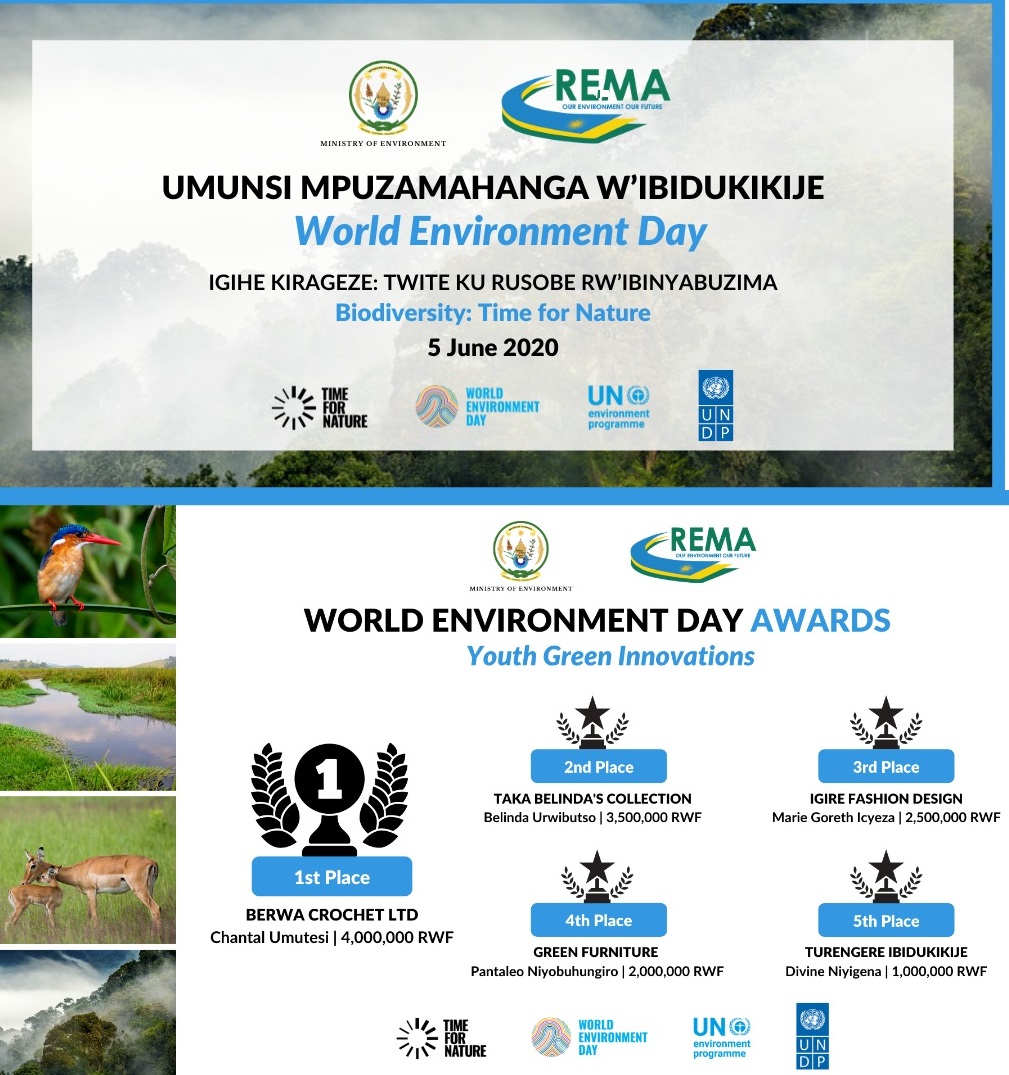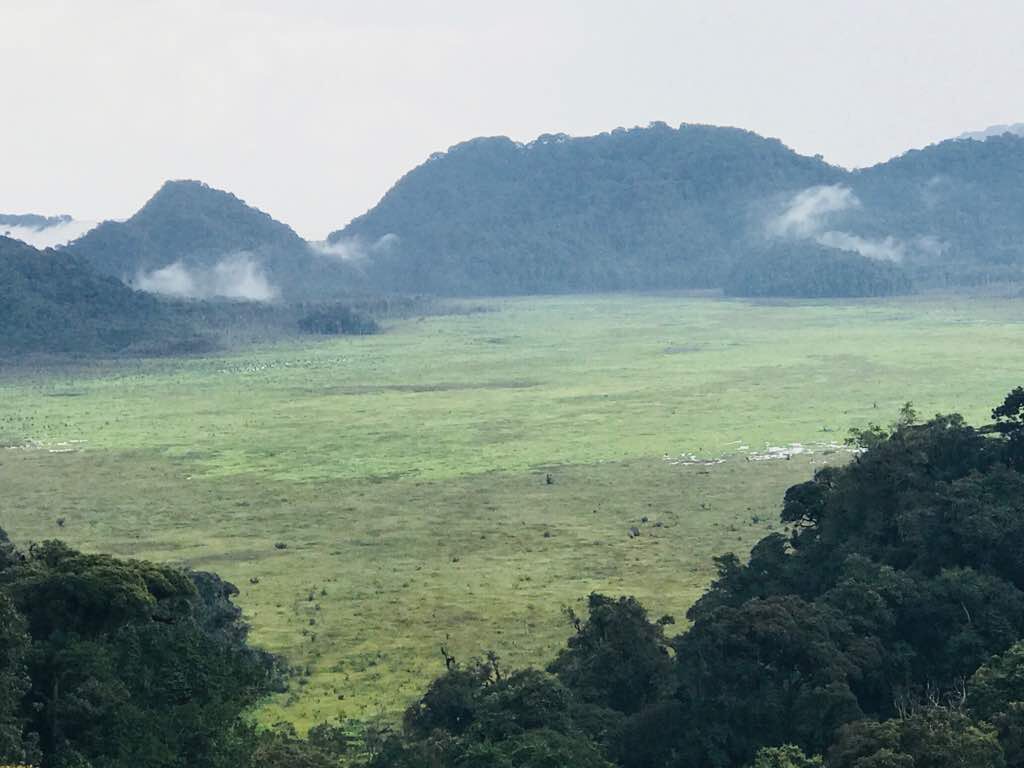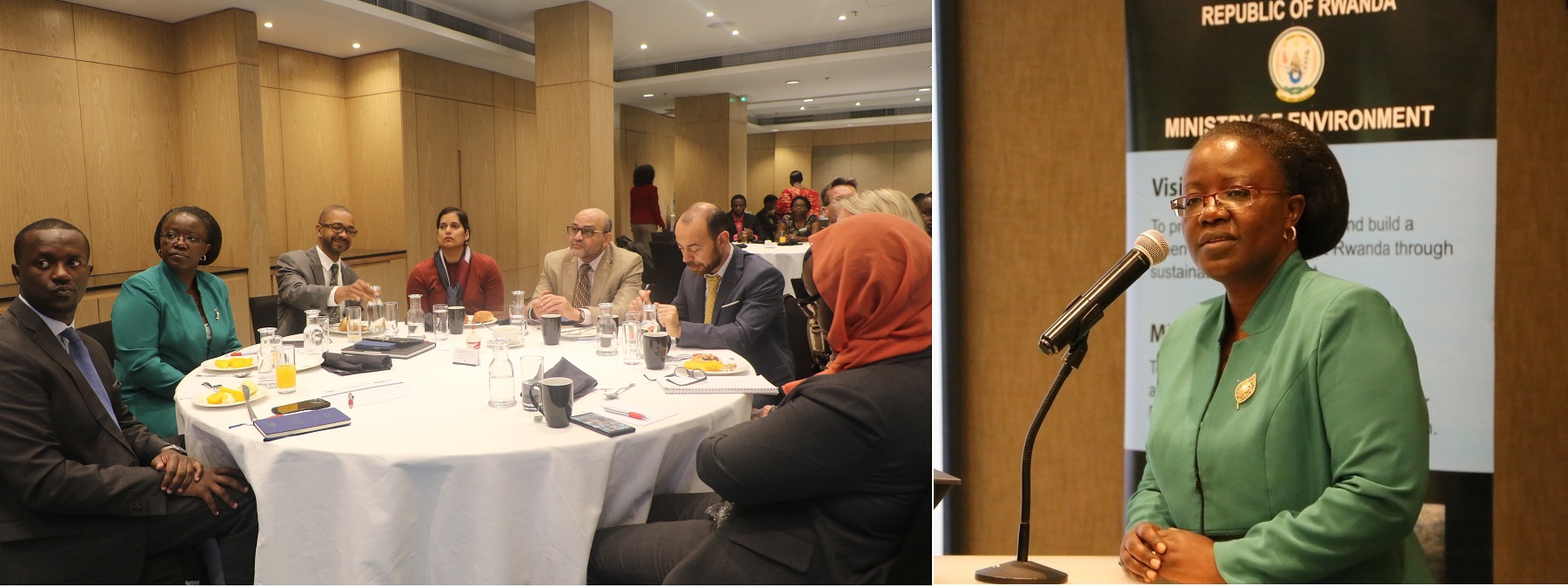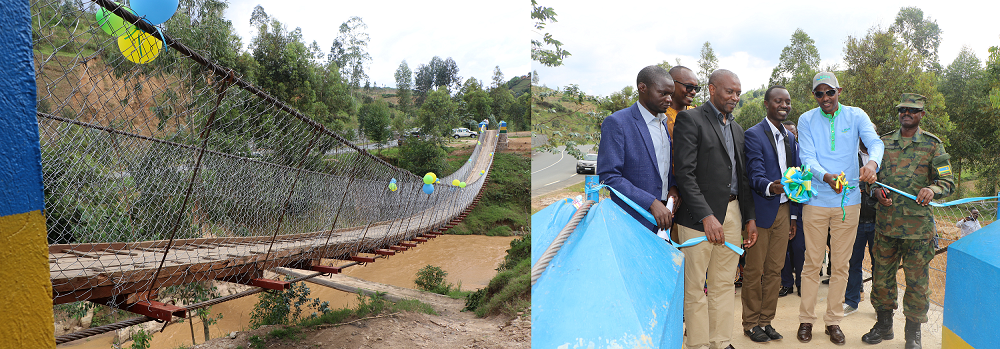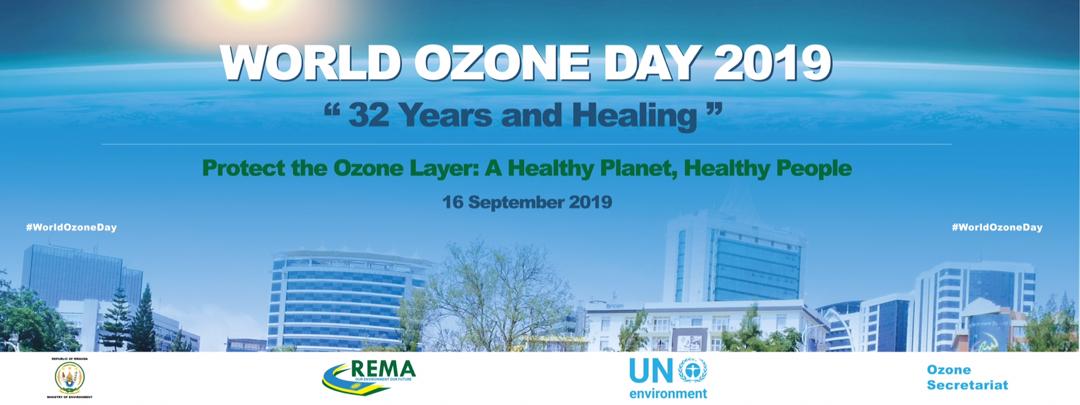
Rwanda joins the rest of the world to celebrate the World Ozone Day 2019
Rwanda is this coming Monday joining the rest of the world to celebrate the World Ozone Day celebrated under the theme “32 years and healing”. The day is celebrated annually on 16th September, proclaimed by the UN General Assembly to be the International Day for the Preservation of the Ozone Layer.
This acknowledges the date of 16 September when representatives from 24 countries met in Montreal-Canada and announced to the world that it was time to stop destroying the ozone layer (16September 1987).
The theme for this year celebrates over three decades of remarkable international cooperation to protect the ozone layer and the climate under the Montreal Protocol. It reminds us that we must keep up the momentum to ensure healthy people and a healthy planet.
For Rwanda, by celebrating the World Ozone Day, the country celebrates its success with its support to the Montreal Protocol especially the Kigali Amendment to the Montreal Protocol, which entered into force on 1 January 2019. Currently, more than 78 countries have already ratified the Kigali Amendment to phase out hydrofluorocarbons (HFCs) that are most potential climate-warming gases. It is important to note that the phasing down of HFCs, will avoid up to 0.4°C of global temperature rise by the end of the century.
Causes and Effects of Ozone Layer depletion
The Ozone layer depletion is normally caused by human activities and human made chemicals especially manufactured halocarbon refrigerants, solvents, propellants and foam-blowing agents that bring chlorine and bromineto the stratosphere, causing then the depletion of ozone layer.
The Ozone layer depleting substances include Chlorofluorocarbons (CFCs), Hydrochlorofluorocarbons (HCFCs), Hydrobromofluorocarbons (HBFCs), Halons, Methyl bromideandCarbon tetrachloride. Those substances have been used as refrigerants in air conditioners, refrigeration equipment, cold rooms and other cooling systems.
The effects of Ozone layer depletion of on human beings include skin cancer, increase in risk of cataract, weakened human immune systems , DNA damage as well as Lung Diseases since Ultraviolet radiations can disturb biomolecules such as lipids, proteins and Nucleic acids.
Effects of ozone layer depletion can also lead to food shortage as Ultraviolet radiations disturb developmental and physiological processes that decrease the productivity of crops.
Ultraviolet radiation also affects wildlife as well since ozone depletion may lead to a loss of plant species and reduce global food supply.
To contribute to the protection of Ozone layer, people are encouraged to use natural gases, timely maintain their cooling equipment such as air conditioners, refrigerators and other heating and cooling systems and also avoid usage gases and chemical products that are dangerous to the ozone layer.
Topics
More posts
Umushinga FLR (Mayaga Project) ugiye gutera ibiti bisaga miriyoni mu gace k’Amayaga mu 2020/2021
Umushinga Forest Landscape Restoration (FLR Mayaga) ukorera mu kigo cy’igihugu cyita ku bidukikije (REMA) ugiye gutera ibiti bibarirwa muri 1,375,792…
What is the Progress on the Development of Nyandungu Eco-Tourism Park Project?
In May 2016, Rwanda Environment Management Authority (REMA) signed a five years’ project implementation agreement up to 2021 with Rwanda Green Fund…
Rwanda commits to a green recovery on World Environment Day
At this year’s World Environment Day celebration, Rwanda has committed to a green, sustainable recovery as the country manages the impacts of the…
Abanyarwanda barakangurirwa kubungabunga urusobe rw’ ibinyabuzima
Buri mwaka, ku wa 05 Kamena isi yose yizihiza Umunsi Mpuzamahanga w’Ibidukikije. Mu Rwanda bimaze kuba umuco ko uyu munsi ubanzirizwa n’icyumweru…
International Day for Biological Diversity 2020
We are celebrating the International Day for Biological Diversity (IDB) on 22 May 2020, under the theme is "Our solutions are in nature". The United…
World Wetlands Day Focuses on Biodiversity
Kigali, 31 January, 2020 - Rwanda celebrated World Wetlands Day on 31 January, 2020 with conference aimed to showcase studies conducted on wetlands…
Rwandans Urged to Stand Committed to Conserving Wetlands
Kigali | 30 January 2022 - Every year, Rwanda joins the world in commemoration of the World Wetlands Day (WWD), celebrated on 2nd February with the…
ENR Sector and Development Partners meet to Discuss on Mainstreaming of Environment and Natural Resources Management in Development Programmes
The Environment and natural resources sector has yesterday met with development partners in a high level breakfast meeting to discuss on continued…
Ngororero: Two Pedestrian Bridges Inaugurated to Support Community Climate Resilience
Two Suspended pedestrian bridges were yesterday inaugurated in Ngororero District to solve rural isolation that has been affecting the community…
